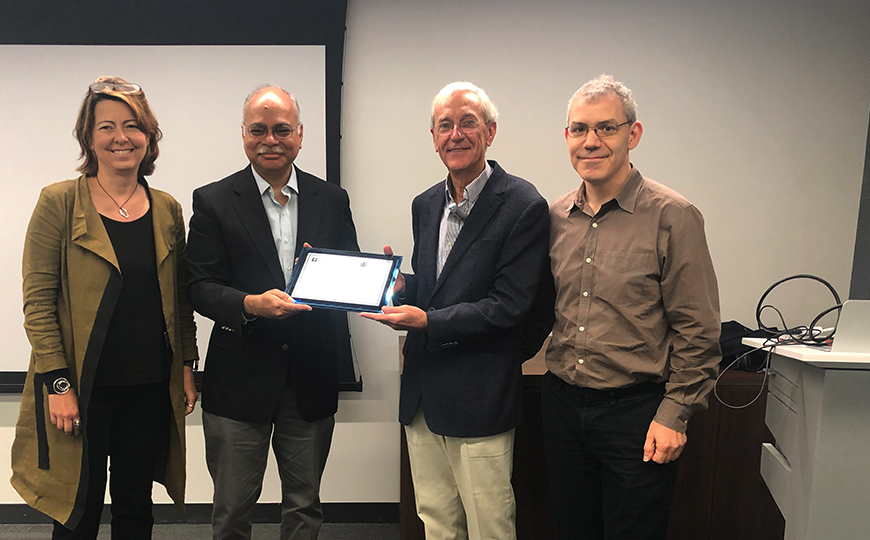Date & time: Tuesday, May 7, 2024 at 11 am EST
RSVP LINK
Zoom Link
Location: 370 Jay Street, 8th floor, seminar room, Brooklyn, NY 11201.
Abstract: Securing signals from unintended eavesdroppers has become an increasingly important problem with the emergence of the Internet-of-Things. Herein, we examine learning problems in signal processing that are inherently hard without key side information. In particular, we exploit necessary resolution limits for classical compressed sensing problems. To limit an eavesdropper’s capabilities, we create an environment for the eavesdropper wherein the appropriate compressed sensing algorithm would provably fail. The intended receiver overcomes this ill-posed problem by leveraging secret side information shared between the intended transmitter and receiver. Two scenarios are considered: one for communication over a wireless channel where a novel block-sparsity based signaling strategy is employed and one for localization where novel structured noise is introduced to degrade the form of the eavesdropper’s channel. In the latter scenario, the transmitter designs a beamformer that introduces spurious paths, or alternatively spoofs the line-of-sight path, in the channel without having access to the channel state information. Both far-field and near-field cases are considered for the private localization. In both private communication and private localization, the amount of secret information that must be shared is very modest. Theoretical guarantees can be provided for both cases. Preliminary results on the information theoretic limits of this form of private communication are provided. Proposed algorithms are validated via numerical results and it is seen that the eavesdropper’s capabilities are severely degraded.
Biography: Urbashi Mitra received the B.S. and the M.S. degrees from the University of California at Berkeley and her Ph.D. from Princeton University. She began her academic career at The Ohio State University. Dr. Mitra is currently the Gordon S. Marshall Professor in Engineering at the University of Southern California with appointments in Electrical Engineering and Computer Science. Dr. Mitra is a Fellow of the IEEE. She was the inaugural Editor-in-Chief for the IEEE Transactions on Molecular, Biological and Multi-scale Communications. Dr. Mitra has served as an Associate or Area Editor for multiple IEEE publications. Dr. Mitra was a member of the IEEE Information Theory Society’s Board of Governors (2002-2007, 2012-2017), the IEEE Signal Processing Society’s Technical Committee on Signal Processing for Communications and Networks (2012-2017, Vice-Chair 2024), the IEEE Signal Processing Society’s Awards Board (2017-2018), and the Chair/Vice Chair of the IEEE Communications Society, Communication Theory Technical Committee (2017-2020). She is the recipient of: the 2021 USC Viterbi School of Engineering Senior Research Award, the 2017 IEEE Communications Society Women in Communications Engineering Technical Achievement Award, a 2016 UK Royal Academy of Engineering Distinguished Visiting Professorship, a 2016 US Fulbright Scholar Award, a 2016-2017 UK Leverhulme Trust Visiting Professorship, 2016 IEEE Communications Society Women in Communications Engineering Mentoring Award, IEEE Communications Society (2015-2016) and Signal Processing Society (2024) Distinguished Lecturer, 2012 Globecom Signal Processing for Communications Symposium Best Paper Award, 2012 US National Academy of Engineering Lillian Gilbreth Lectureship, Student Best Paper Award, as co-advisor, at the International Conference on Signal Processing and Communications, Bangalore India 2012, the 2009 DCOSS Applications & Systems Best Paper Award, Texas Instruments Visiting Professor (Fall 2002, Rice University), 2001 Okawa Foundation Award, 2000 OSU College of Engineering Lumley Award for Research, 1997 OSU College of Engineering MacQuigg Award for Teaching, and a 1996 National Science Foundation CAREER Award. She is most recently, the general co-chair for the IEEE International Symposium on Information Theory, 2024, Athens Greece. Dr. Mitra has held visiting appointments at: King’s College, London, Imperial College, the Delft University of Technology, Stanford University, Rice University, and the Eurecom Institute. Her research interests are in: model-based machine learning, wireless communications, communication and sensor networks, biological communication systems, and the interface of communication, sensing and control.
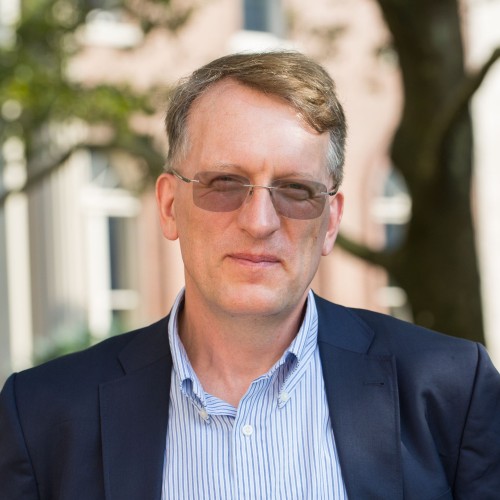
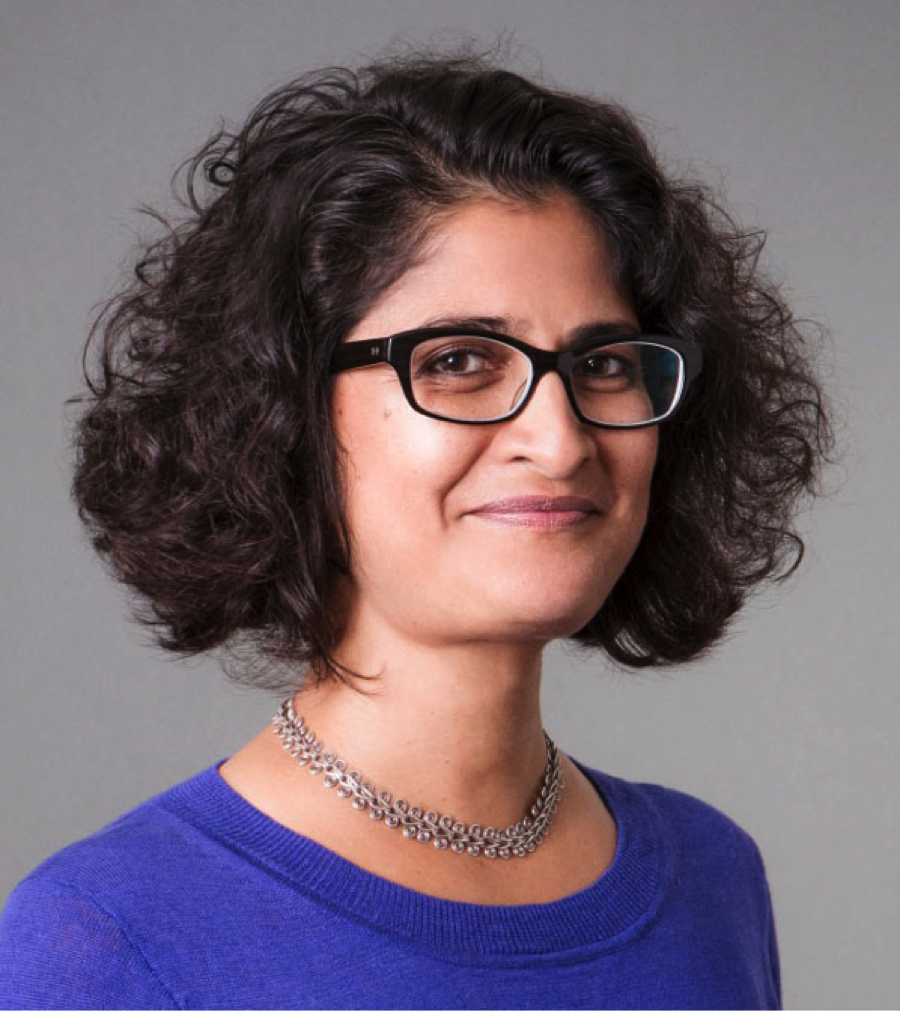
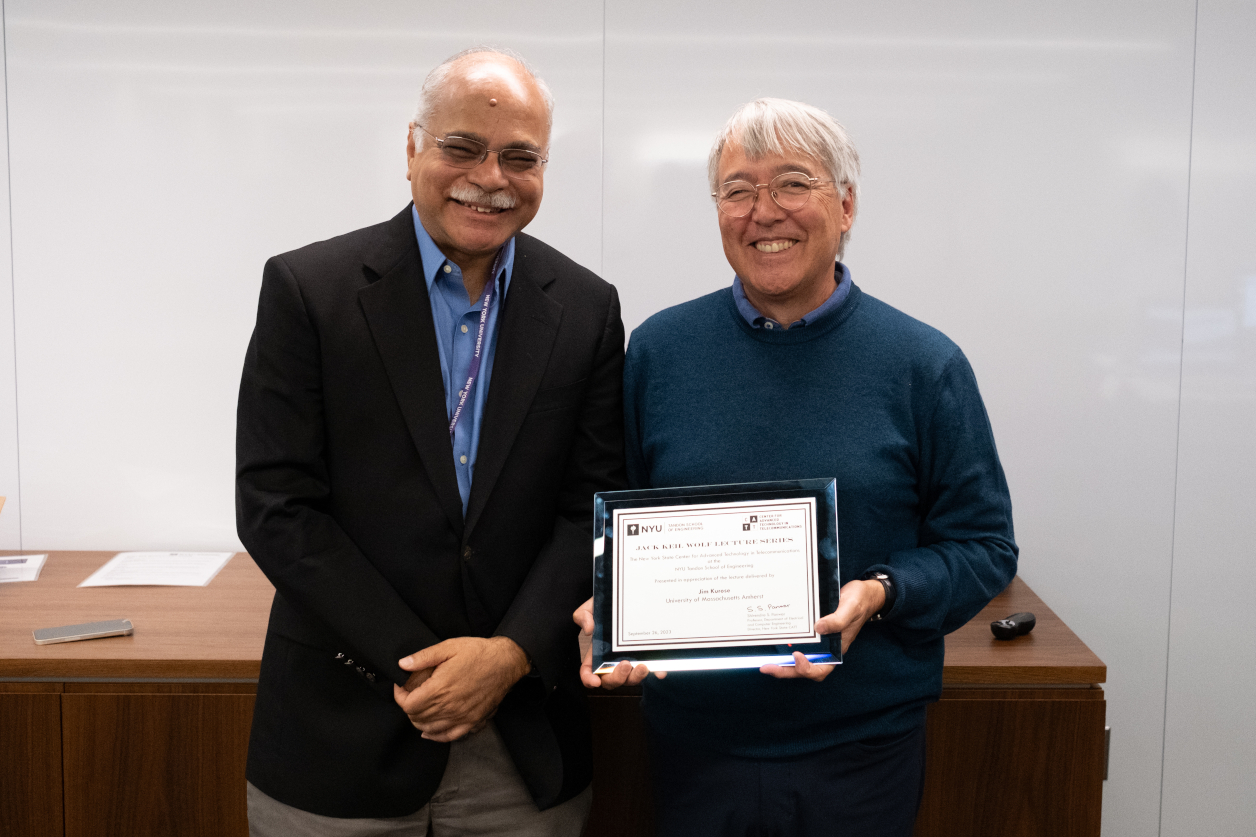

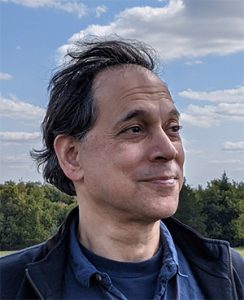 Ken Perlin, a professor in the Department of Computer Science at New York University, directs the Future Reality Lab, and is a participating faculty member at NYU MAGNET. His research interests include future reality, computer graphics and animation, user interfaces and education. He is chief scientist at Parallux and Tactonic Technologies. He is an advisor for High Fidelity and a Fellow of the National Academy of Inventors. He received an Academy Award for Technical Achievement from the Academy of Motion Picture Arts and Sciences for his noise and turbulence procedural texturing techniques, which are widely used in feature films and television, as well as membership in the ACM/SIGGRAPH Academy, the 2020 New York Visual Effects Society Empire Award the 2008 ACM/SIGGRAPH Computer Graphics Achievement Award, the TrapCode award for achievement in computer graphics research, the NYC Mayor’s award for excellence in Science and Technology and the Sokol award for outstanding Science faculty at NYU, and a Presidential Young Investigator Award from the National Science Foundation. He serves on the Advisory Board for the Centre for Digital Media at GNWC. Previously he served on the program committee of the AAAS, was external examiner for the Interactive Digital Media program at Trinity College, general chair of the UIST2010 conference, directed the NYU Center for Advanced Technology and Games for Learning Institute, and has been a featured artist at the Whitney Museum of American Art. He received his Ph.D. in Computer Science from NYU, and a B.A. in theoretical mathematics from Harvard. Before working at NYU he was Head of Software Development at R/GREENBERG Associates in New York, NY. Prior to that he was the System Architect for computer generated animation at MAGI, where he worked on TRON.
Ken Perlin, a professor in the Department of Computer Science at New York University, directs the Future Reality Lab, and is a participating faculty member at NYU MAGNET. His research interests include future reality, computer graphics and animation, user interfaces and education. He is chief scientist at Parallux and Tactonic Technologies. He is an advisor for High Fidelity and a Fellow of the National Academy of Inventors. He received an Academy Award for Technical Achievement from the Academy of Motion Picture Arts and Sciences for his noise and turbulence procedural texturing techniques, which are widely used in feature films and television, as well as membership in the ACM/SIGGRAPH Academy, the 2020 New York Visual Effects Society Empire Award the 2008 ACM/SIGGRAPH Computer Graphics Achievement Award, the TrapCode award for achievement in computer graphics research, the NYC Mayor’s award for excellence in Science and Technology and the Sokol award for outstanding Science faculty at NYU, and a Presidential Young Investigator Award from the National Science Foundation. He serves on the Advisory Board for the Centre for Digital Media at GNWC. Previously he served on the program committee of the AAAS, was external examiner for the Interactive Digital Media program at Trinity College, general chair of the UIST2010 conference, directed the NYU Center for Advanced Technology and Games for Learning Institute, and has been a featured artist at the Whitney Museum of American Art. He received his Ph.D. in Computer Science from NYU, and a B.A. in theoretical mathematics from Harvard. Before working at NYU he was Head of Software Development at R/GREENBERG Associates in New York, NY. Prior to that he was the System Architect for computer generated animation at MAGI, where he worked on TRON.